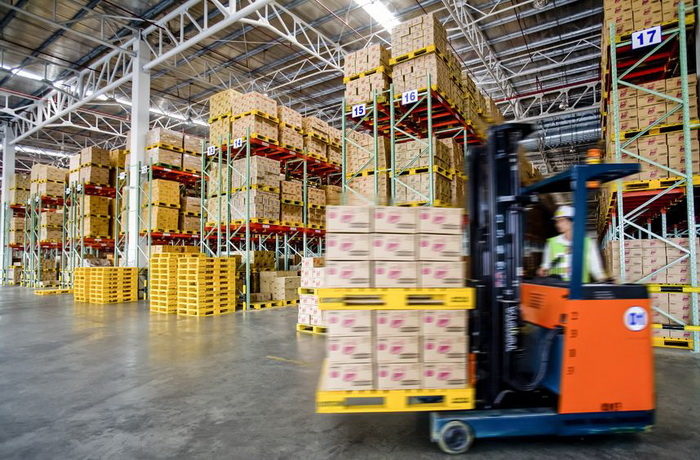How MYOB Acumatica handles inventory: the essentials and the unexpected
What are the core—and extra-special—inventory management features that make MYOB Acumatica (formerly MYOB Advanced) the best choice for small to medium wholesale distribution businesses?
If you’ve started the process to select and implement ERP software in 2019, and you run a business that requires holding stock, no doubt inventory management functionality is high on your wish list of features.
Once you start turning over between $5-10 million, relying on standard accounting software will place limitations on your ability to manage the costs, logistics and traceability related to holding optimal levels of stock and rapid delivery of products to customers.
Inventory Management is a core feature within MYOB Acumatica, which is the ideal, cloud-based solution for smaller wholesale distribution companies that are on a growth trajectory. MYOB Acumatica’s inventory management features are so helpful that you’ll wonder how you ever managed without them.
Essential inventory management features in MYOB Acumatica
Wholesale distribution today is a complex balancing act: riding the trends and fluctuations that affect customer demand for products; adjusting margins to remain profitable; managing lead times and shipping costs; getting stock out the door quickly and accurately; and remaining competitive in a world where direct-to-consumer sales are knocking out many intermediary businesses.
MYOB Acumatica’s inventory management functionality vastly improves your capacity to complete a stocktake and coordinate the movement of stock: all in real-time. You can unlock the full potential of every pallet and package in your warehouse and across multiple warehouses.
Inventory management using MYOB Acumatica supports your business to:
- Ensure physical records match digital records, including counting inventory by sub-item.
- Receive alerts and automatically generate POs based on orders or forecasted demand.
- Assign and track batch/lot numbers for quality assurance and traceability purposes.
- Track and manage stock by expiration date to meet regulatory needs and avoid dead stock.
- Track in-transit stock and automate replenishments by transfers between warehouses.
- Precisely locate stock within warehouses by bin location for faster picking and packing.
Where MYOB Acumatica stands apart for inventory management
These are some of the more distinctive aspects of inventory management offered in MYOB Acumatica:
Exact cost management: MYOB Acumatica supports standard and average costings, but it also supports more advanced costing methodologies that help you accurately manage costs to improve margins. For example, it’s possible to:
-
- Cost items by their lot/batch number: That means when a particular batch of goods comes in, you can give that batch a cost which will be maintained—not averaged out across other products also in your inventory.
- Cost items by serial number: Let’s say you stock machinery configured to order. You can assign each individual item a different cost.
- Cost items differently between warehouses: You might put a higher price on the same item in different warehouses due to local cost issues.
- Cost items differently by bin location: Two bins could contain the same product, but one is returned stock that you plan to sell at a reduced price. Or perhaps you want to separate out demo items, seconds or nearly out-of-date items and cost them differently.
Rules-based availability reporting: MYOB Acumatica inventory management functionality enables you to immediately see what stock is actually available. It does this by accurately taking into account: what stock is on order; what’s available in your warehouses; and what stock in your warehouse has already been sold. You can apply rules to further refine what’s ‘available’. For example, you may only be selling out of specific warehouses, or want to exclude returned stock or see availability based on confirmed sales orders.
Hard and soft allocation of stock: Apart from whether a product is available and how much it costs, your most common customer question is likely ‘When can I get it?’ Being able to satisfy critical orders requires that your ERP solution keeps pace with the speed of sales, enabling you to allocate stock at any point. So for instance, you may have a container of stock on its way over from China when you receive a time-sensitive sales order from one of your most valued customers. MYOB Acumatica enables you to go into the system, generate a purchase order directly from the sales order, and hard allocate a specific amount of stock from the shipment that’s due to arrive—essentially reserving those goods so they can’t be used for other orders. Soft allocation is a more loose reservation, where the stock can be picked from any available inventory.
[RELATED – Top 3 ways to maximise inventory ROI ]
Get control of inventory and the bigger picture
MYOB Acumatica is a robust but easy-to-use Enterprise Resource Planning (ERP) solution—which means it gives you an integrated view of financial health and all business operations, including inventory management.
Inventory management functionality forms a part of the Supply Chain Management suite of modules in MYOB Acumatica aimed at helping you improve profitability by warehouse, product line, location, and business unit.
If you need to step up your business process management in every area and you also hold stock, MYOB Acumatica is an excellent investment in the future of your business.
We’re experts in MYOB Acumatica (formerly MYOB Advanced) and we understand the wholesale distribution industry—let’s talk. Contact one of our experienced consultants today.






Leave A Comment